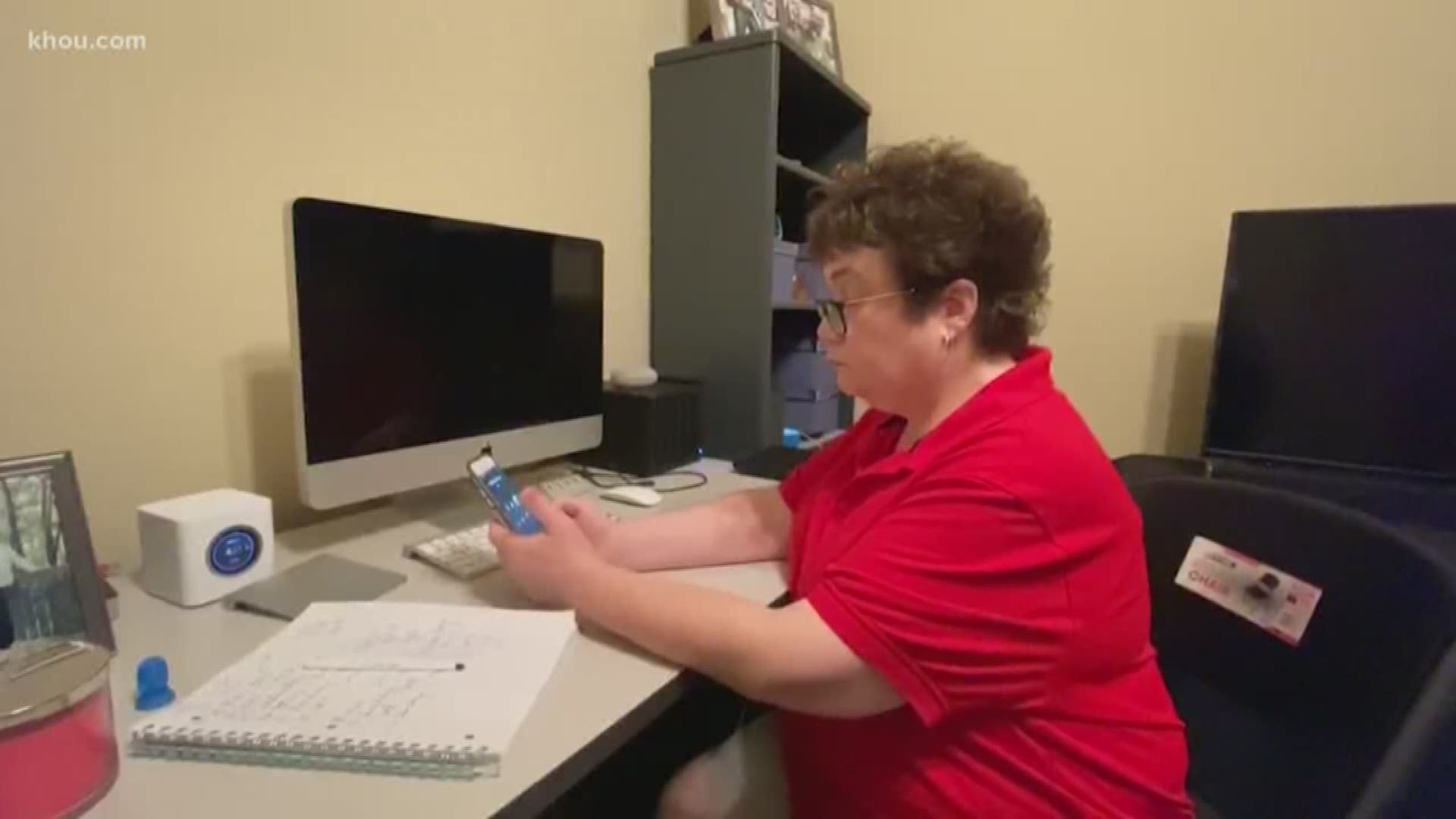HOUSTON — More than half a million Texans have filed unemployment claims in the last 18 days due to COVID-19, according to the Texas Workforce Commission.
Texans have documented their struggles of trying to file both online and over the phone.
"This unprecedented increase has led to long wait times, overwhelmed call centers and technical issues with the Unemployment Benefit Services portal," a Texas Workforce Commission spokesperson wrote in a news release.
It's a fact Allison Salsbury knows all too well.
"This has been hell, honestly" Salsbury said.
Salsbury was laid off from her job at a restaurant in mid-March as a result of COVID-19. She said she has spent every day calling the TWC, a total of nearly 3,000 calls, dialing hundreds of times each day, and getting a busy signal.
"Bills are due. Our life goes on, and I didn’t know how I was going to take care of that," Salsbury said.
The TWC expects it will soon outpace the total number of claims received in all of 2019.
A spokesperson said there are 1,200 people working in unemployment services currently, including 100 emergency staff members recently hired.
The TWC has upgraded and expanded telephone infrastructure and website capacity, and transferred 200 staff from other departments to help take claims.
The spokesperson said 250 additional staff are being transferred over this week, and two third-party vendors are being added soon to help take claims.
They also added an artificial intelligence chat bot to the TWC website, which that spokesperson said has already helped 43,817 people and has answered more than 98,065 messages.
“The outbreak of COVID-19 has reminded each of us the importance of acting with others in mind,” said TWC Executive Director Ed Serna in a statement. “Just as with the virus, we can treat this problem far more effectively if we work together and space out the demand rather than having everyone call at the same time. I know there are Texans worried about being out of work and missing their paychecks. We keep working until every Texan that needs help gets help. We are asking for you to join the effort.”
No Texan will be penalized for a delay due to call volume, and if your claim is related to COVID-19, it is eligible to be backdated.
Complicating the issue for Salsbury is that she worked outside of Texas within a certain time period. A questionnaire on the website asks people if they worked out of state between Oct. 1, 2018, and Sept. 30, 2019. For those who have leads to a page that advises the person to call a tele-center, ending the online process.
"I just wish they would make this a little easier for people who have worked in two states. I can’t be the only one struggling with this," Salsbury said.
Coronavirus symptoms
The symptoms of coronavirus can be similar to the flu or a bad cold. Symptoms include a fever, cough and shortness of breath, according to the Centers for Disease Control. Some patients also have nausea, headaches and stomach issues.
Most healthy people will have mild symptoms. A study of more than 72,000 patients by the Centers for Disease Control in China showed 80 percent of the cases there were mild.
But infections can cause pneumonia, severe acute respiratory syndrome, kidney failure and even death, according to the World Health Organization. Older people with underlying health conditions are most at risk for becoming seriously ill. However, U.S. experts are seeing a significant number of younger people being hospitalized, including some in ICU.
The CDC believes symptoms may appear anywhere from two to 14 days after being exposed.
Human coronaviruses are usually spread through...
- The air by coughing or sneezing
- Close personal contact, such as touching or shaking hands
- Touching an object or surface with the virus on it, then touching your mouth, nose or eyes before washing your hands.
Help stop the spread of coronavirus
- Stay home when you are sick.
- Eat and sleep separately from your family members
- Use different utensils and dishes
- Cover your cough or sneeze with your arm, not your hand.
- If you use a tissue, throw it in the trash.
- Follow social distancing
Lower your risk
- Wash your hands often with soap and water for at least 20 seconds. If soap and water are not available, use an alcohol-based hand sanitizer.
- Avoid touching your eyes, nose, and mouth with unwashed hands.
- Avoid close contact with people who are sick.
- Clean and disinfect frequently touched objects and surfaces.
- If you are 60 or over and have an underlying health condition such as cardiovascular disease, diabetes or respiratory illnesses like asthma or COPD, the World Health Organization advises you to try to avoid crowds or places where you might interact with people who are sick.
Get complete coverage of the coronavirus by texting 'FACTS' to 713-526-1111.

